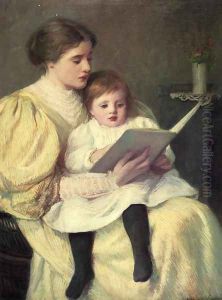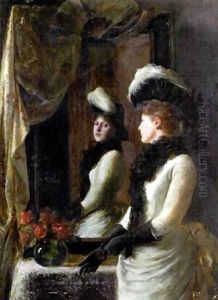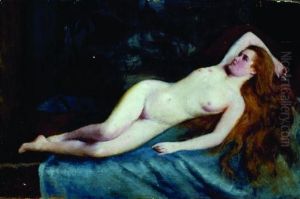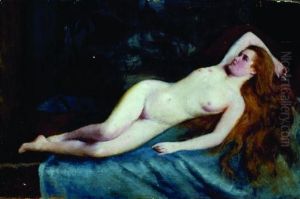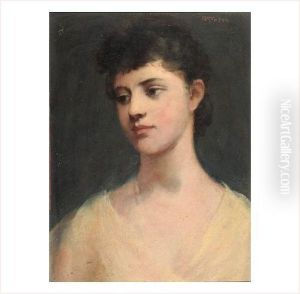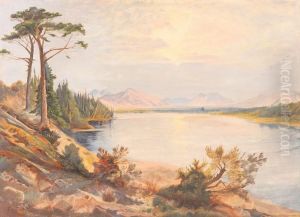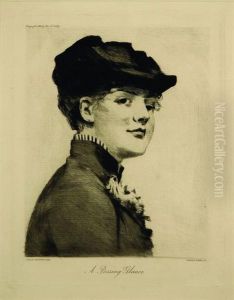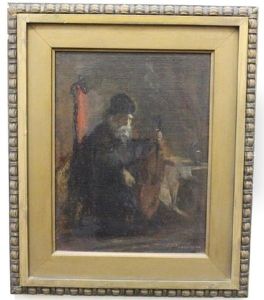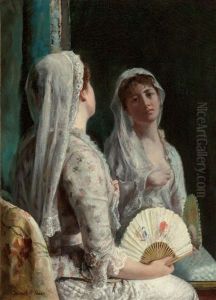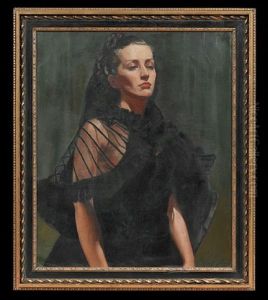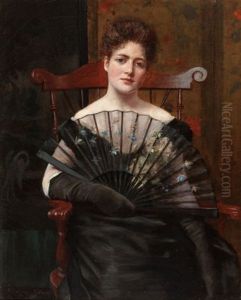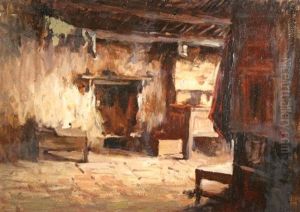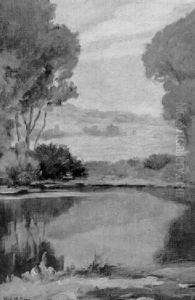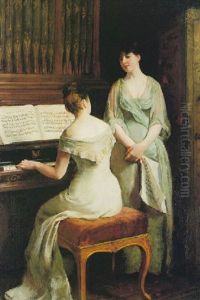Frederick Warren Freer Paintings
Frederick Warren Freer was an American artist known for his contribution to the art world during the late 19th and early 20th centuries. Born in Chicago, Illinois, in 1849, Freer's artistic journey began at a young age, influenced by the vibrant cultural landscape of his hometown. He pursued his passion for art by studying at the School of the Art Institute of Chicago, a pivotal institution in shaping his early artistic development. His talent and dedication to art soon led him to seek further education and inspiration in Europe, a common practice among American artists of his time who wished to immerse themselves in the rich artistic traditions of the continent.
Freer's European sojourn took him to Paris, where he studied at the prestigious École des Beaux-Arts under the tutelage of Jean-Léon Gérôme, a renowned French painter and teacher known for his classical and historical subjects. This period was crucial for Freer, as it exposed him to new artistic techniques, styles, and philosophies, particularly those of the French academic and impressionist movements, which were to influence his later work. His time in Europe was not only limited to France; he traveled extensively across the continent, absorbing various cultural and artistic influences that would later be reflected in his diverse body of work.
Upon returning to the United States, Freer established himself in Chicago, becoming an integral part of the city's burgeoning art scene. His works during this period primarily focused on genre scenes, portraits, and landscapes, characterized by a delicate interplay of light and color. Freer's mastery in capturing the subtleties of light and his nuanced use of color nuances won him critical acclaim and a distinguished place among his contemporaries. His paintings were regularly exhibited at prominent venues, including the Art Institute of Chicago and the Pennsylvania Academy of the Fine Arts, earning him a reputation as a leading figure in American art.
In addition to his painting career, Freer was deeply involved in the artistic community, contributing to the development of art education and institutions in Chicago. He was among the founding members of the Society of Western Artists, a group that aimed to promote and support the work of artists in the American Midwest. Freer's dedication to the arts also saw him teaching at the Art Institute of Chicago, where he influenced a new generation of artists with his insights and expertise.
Frederick Warren Freer's passing in 1908 marked the end of a prolific career that had a lasting impact on the American art landscape. His works are preserved in several prominent collections and continue to be celebrated for their beauty, technical skill, and the unique perspective they offer on the American and European scenes of his time. Freer's legacy lives on as a testament to his contributions to the art world, bridging the traditions of the old world with the emerging styles and sensibilities of the new.
